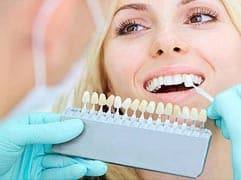What Causes Tooth Decay?
Cavities are permanently damaged areas found on the hard surface of your teeth which develop into small holes or openings. Cavities, which can also be called tooth decay or caries, are caused by a combination of factors which can include bacteria in your mouth, frequent snacking, consuming sugary drinks and failing to properly clean your teeth.
Cavities and tooth decay are some of the most common health problems throughout the world. Cavities are especially common in children, teenagers and older adults, but anyone with teeth can get a cavity.
When cavities are not properly treated, they grow larger and impact deeper layers of the tooth. They can cause severe toothaches, infection and even the loss of the tooth. Regular dental visits and good oral hygiene with twice daily brushing and regular flossing help protect your teeth against cavities and tooth decay.
The signs and symptoms of cavities can vary based on the level of decay and the location of the tooth. When a cavity is in the early stages, you may not have noticeable symptoms. As the decay progresses and the cavity grows, it may result in the following signs and symptoms:
- Toothache
- Tooth sensitivity
- Pain when eating or drinking, especially to heat or cold
- Visible holes or pits in the teeth
- Brown, black or white staining on the tooth’s surface
- Pain when biting down
Because you may not be aware that a cavity is forming, it is important to visit the dentist for regular exams and professional cleanings. In the event that you experience a toothache or pain, visit your dentist as soon as possible.
Cavities are caused by tooth decay which is a process that occurs slowly over time. Below is a summary of the development of tooth decay:
- Formation of plaque: Dental plaque is a sticky, clear film which coats the teeth. It develops from consuming sugar and starch without properly cleaning your teeth. This allows the bacteria to quickly feed on them and form plaque. Plaque which remains on your teeth can harden below or above the gum line and turn into tartar. Tartar makes plaque more challenging to remove and creates a shield for the bacteria.
- Plaque attacks: The acid found in plaque remove minerals in the tooth's outer enamel. This erosion creates tiny holes in the enamel which is the first stage of a cavity. Once areas of enamel are damaged, bacteria and acid can reach the second layer of the teeth or dentin. This layer is softer than the enamel and easier for the acid to penetrate. Dentin also has small tubes which communicate with the nerve of the tooth and causes tooth sensitivity.
- Tooth destruction: As the tooth decay progresses, the bacteria and acid continue to damage the tooth. The decay moves to the inner tooth material or pulp which contains nerves and blood vessels. The pulp then becomes swollen and irritated from the bacteria. Because the swelling cannot expand inside the tooth, the nerve becomes trapped and causes pain. This discomfort can even into the bone.
While anyone with teeth is at risk of getting cavities, but the following can increase your risk for a cavity:
Location of the tooth. Decay most commonly occurs in the back teeth. These teeth have grooves and pits which can easily collect food particles. These teeth can be more difficult to keep clean compared to the accessible and smoother front teeth.
- Food and beverages. Foods which cling to your teeth such as milk, ice cream, honey, sugar, soda, cookies, candy and chips are more likely to cause decay compared to foods which are easily washed away with saliva.
- Constant snacking and sipping. When you snack and continuously sip on sugary drinks throughout the day, you provide the bacteria in the mouth with fuel to produce acid which attacks and wears down the teeth.
More on Tooth Decay : What is Tooth Decay
Actual Patient Reviews
We have so many terrific reviews it's impossible for us to list them all! Thanks for supporting Iowa Dental Group with your gratitude.
Dental Office Location
Iowa Dental Group prides ourselves in offering the highest quality dentistry at a fair and reasonable fee.
Des Moines, Ia 50311
(515) 277-6358
iowadentalgroup@hotmail.com
https://www.iowadentalgroup.com
Iowa Dental Group Contact Form
Our Des Moines' Dentists Bob Margeas DDS & Nicholas Economos are eager to help provide any answers you may have. Contact us today regarding optimal oral health.
Dentist Office Hours
Our Dentists look forward to answering any dentistry related questions or dental concerns you may have regarding your overall oral health and smile.
Office Hours
| Monday: | 7:30am - 5:00pm |
| Tuesday: | 7:30am - 5:00pm |
| Wednesday: | 7:30am - 5:00pm |
| Thursday: | 7:30am - 5:00pm |
| Friday: | Closed |
| Saturday: | Closed |
| Sunday: | Closed |
















